Computing & IS
Over 600 graduate from CoCIS during the Mak 74th Graduation ceremony
Published
2 years agoon
By
Jane Anyango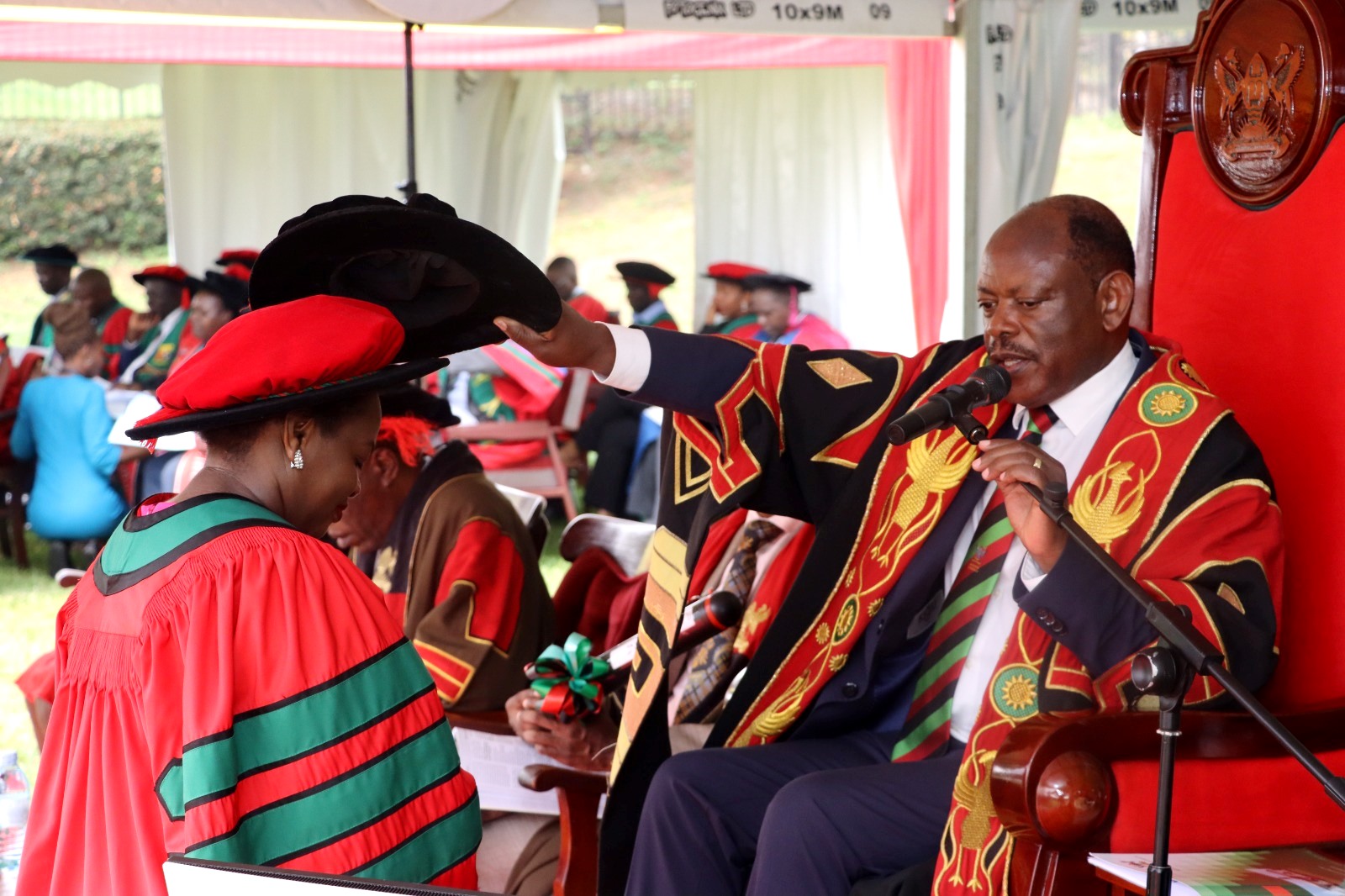
661 graduands from the College of Computing and Information Sciences (CoCIS) were on 31st January awarded degrees and diplomas in the different disciplines during the 3rd session of Mak 74th Graduation ceremony.
Of that total, 626 graduates walked away with undergraduate (Bachelors degrees), 32 with Masters Degrees, 2 with PhDs while 1 got a Post Graduate Diploma.
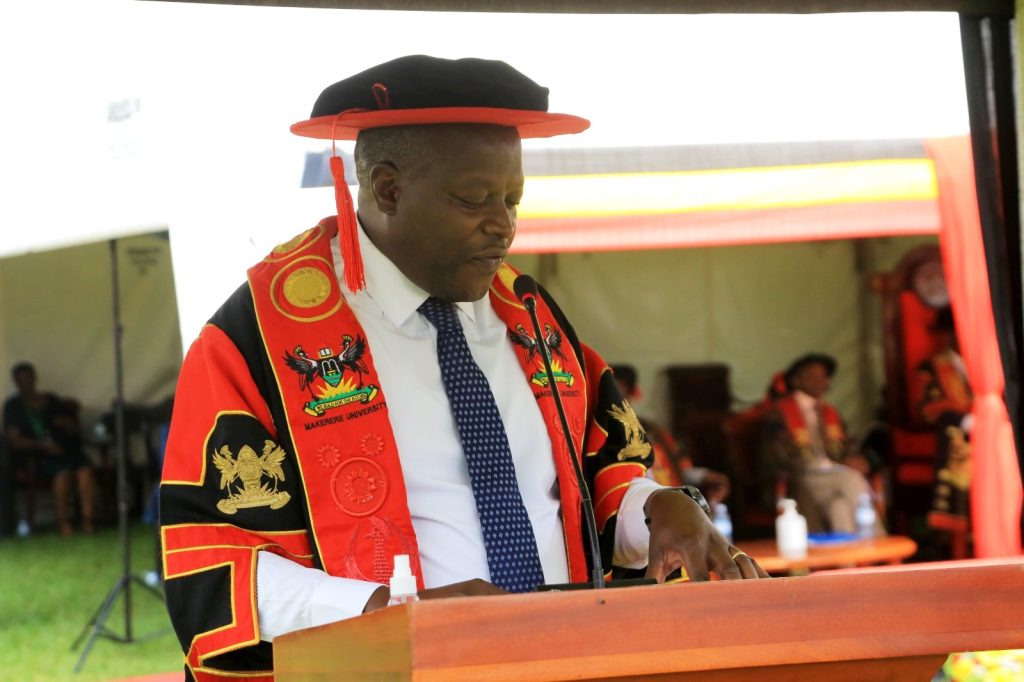
The five-day long graduation ceremony kicked off on the 29th of January 2024 – 2nd February 2024. During the course of the 74th graduation ceremony a total of 12,913 graduands received degrees and diplomas of Makerere University. Of these, a total of 132 graduands graduated with PhDs, 1585 with Masters degrees, 11,016 with Bachelor’s degrees, 156 with postgraduate diplomas, and 24 with undergraduate diplomas.
53% of the graduands were female and 47% were male. In the category of PhD graduands, 46 were female and 86 were male. In the category of students graduating with Master’s degrees, 699 were female and 886 were male.
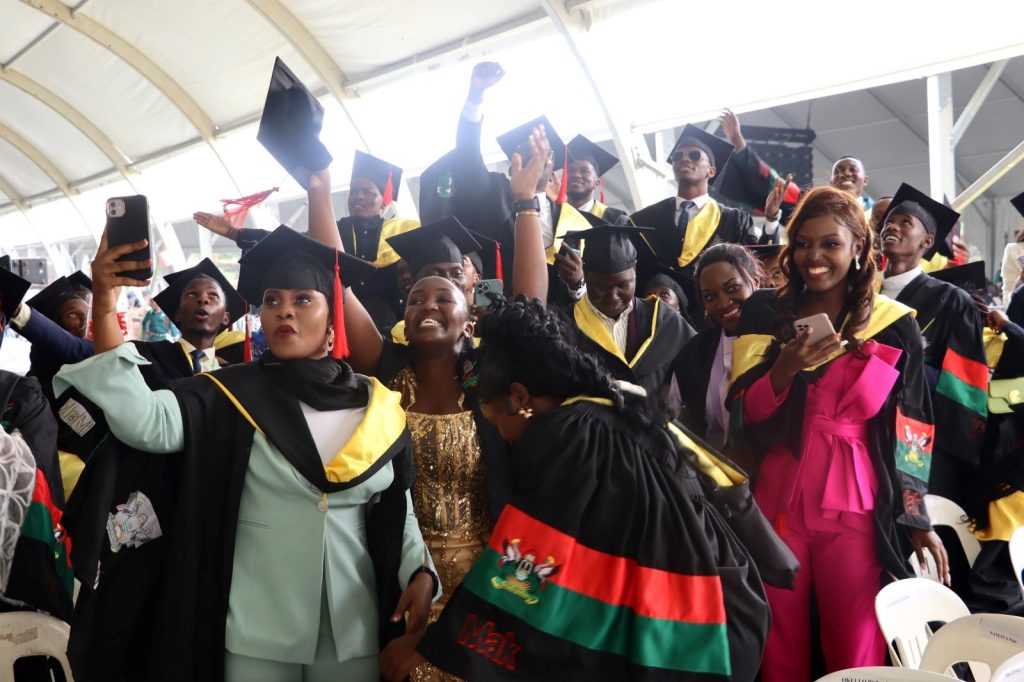
The graduation ceremony was presided over by the Vice Chancellor Makerere University Prof. Barnabas Nawangwe. Nawangwe executed the role of Chancellor as provided for in the Universities and Other Tertiary Institutions Act following the expiry of the tenure of Prof. Ezra Suruma as Chancellor. The University Council commenced the search for his successor that was on-going.
CoCIS Commended for Noble Research in Artificial Intelligence to Solve Africa’s Problems
Reflecting on the May 2019 UNESCO conference on Artificial Intelligence and education in Beijing, China, the Vice Chancellor asserted the university’s potential and commitment to utilization of AI to make a difference for Africa.
Prof. Nawangwe reported that the University through the College of Computing and Information Sciences in collaboration with the School of Public Health received a grant funding worth US$1,500,000 (5.5bn/=) from Google to support its Ocular project that is undertaking research on usage of Artificial Intelligence to enhance the diagnosis process of Malaria, Tuberculosis and Cervical Cancer in Uganda.
Launched on 13th September 2023, the project team led by Dr. Rose Nakasi benched on the rampant challenges faced by the laboratory experts while undertaking diagnosis procedures. Health centres in Uganda are not only strained with the escalating number of patients seeking for laboratory screening tests – the country has few trained laboratory technicians to support the diagnosis process using the microscope.
The research team according to the Nawangwe took advantage of the existing technologies such as the smartphone and the availability of at least a microscope in every health centre across the country to develop a 3D printable adaptor that was attached to an eye piece of the microscope. The 3D adapter was also slotted in the smartphone to capture images.
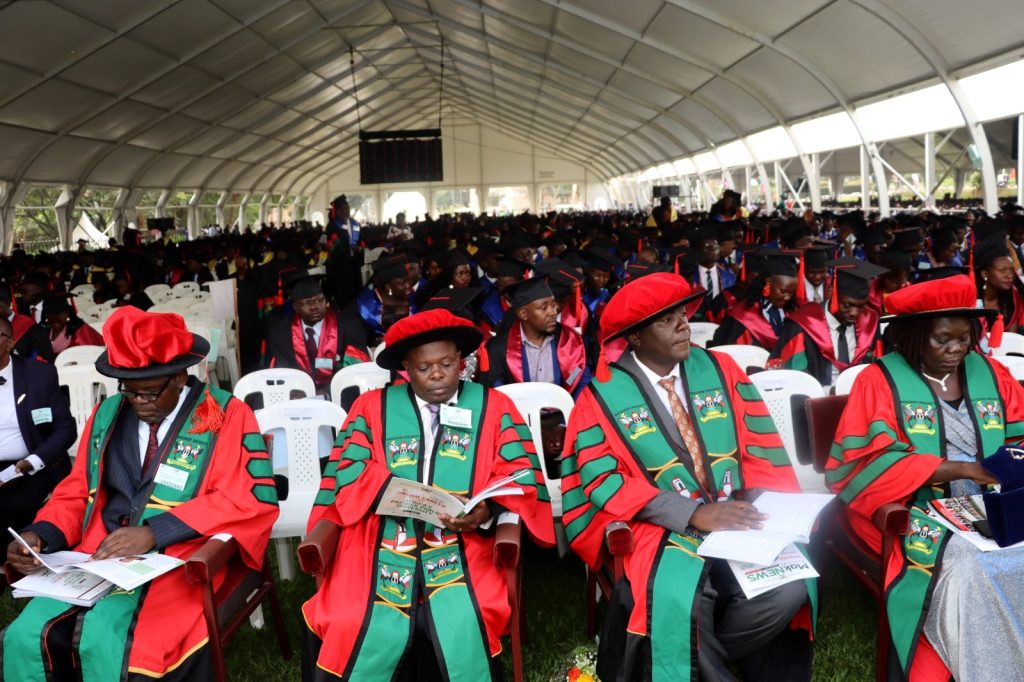
With the capabilities of Artificial intelligence through computer vision, images can be processed and this directs the experts where the pathogens are. This technology shortens the diagnosis process making it more accurate, quicker and easier to diagnose health conditions and potentially reducing screening time by over 80%.
The Vice Chancellor also reported that in addition, researchers led by a second-year PhD student Paddy Junior Asiimwe designed a device to monitor elderly people with dementia and cognitive impairment in rural Uganda. The device, wearable by the elderly will monitor the patients’ movement and location and then signal the caretaker and the hospital in case of emergencies.
The technology funded by Government of Uganda through Mak-RIF was disclosed on 13th October, 2023. It monitors elderly people remotely using GPS technology which defines a safe zone around a user and a PDR system to monitor the position of the user within the safe zone. This technology is cheap, and better than the systems existing on market, and is best recommended for more resource constrained environments. The system operates independent of the user mostly in rural areas who cannot read and write. It does not require electricity and runs on batteries, charged once a week and can run for 30 days.
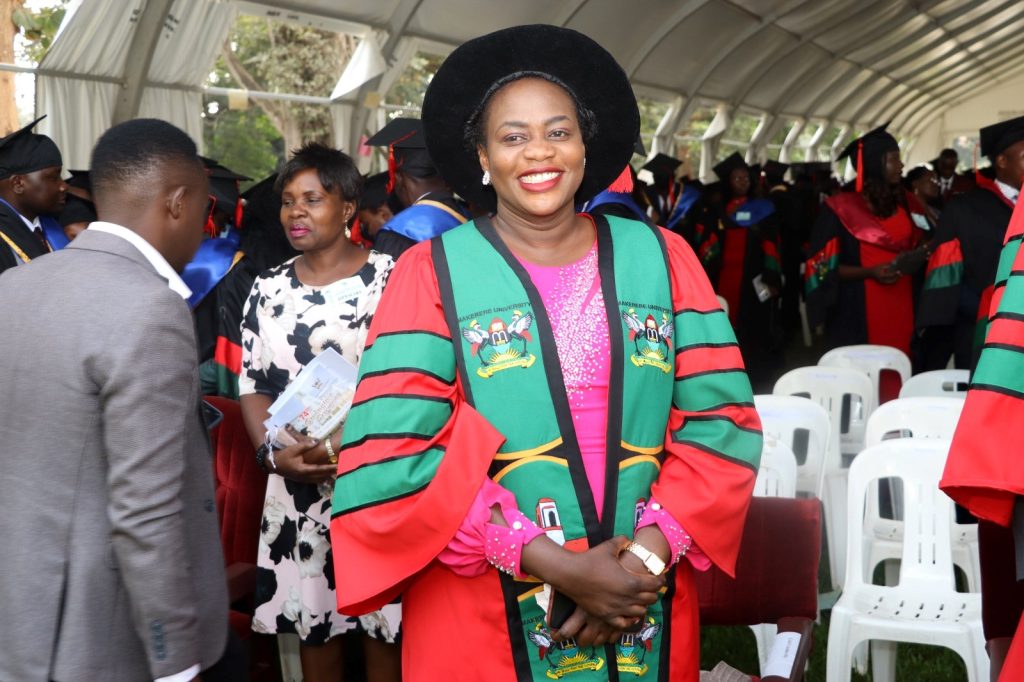
Prof. Nawangwe also highlighted how university researchers lead by Prof. Engineer Bainomugisha has invented devices geared towards monitoring and managing air quality across cities on the continent.
“The AirQo Project, in collaboration with various partners launched the CLEAN-Air Africa Network on 5th April 2023 bringing together communities of practice from over fifteen cities in Africa, with a focus on utilising low-cost sensors for air quality management in Africa.
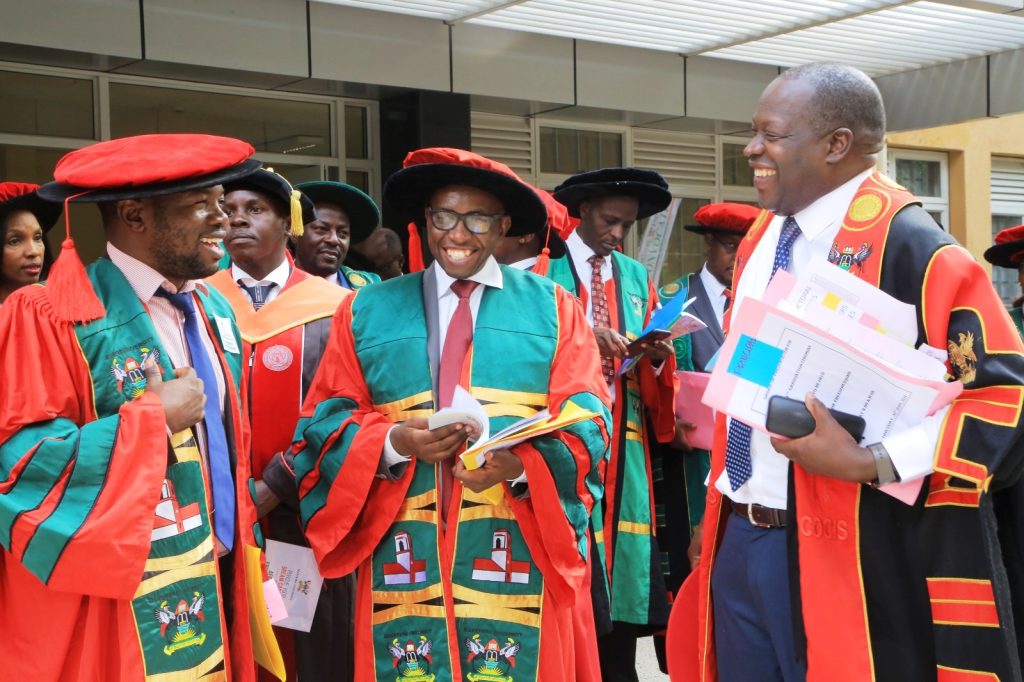
Held under the theme: Championing Liveable Urban Environments through African Networks for Air, the workshop served as a Launchpad for Africa-led collaborations and multi-regional partnerships for sustained interventions to achieve cleaner air across the Continent”, Nawangwe appreciated.
Five get the Vice Chancellor’s Research Excellence Awards 2023
During this third session , the Vice Chancellor recognized the best researchers listed and published in the Graduation Booklet and the Mak News Magazine. The awards were based on Scopus database. The researchers were honored by the Vice Chancellor and Chairperson of Makerere University during the convocation luncheon held at Makerere University Convocation House.
CoCIS best researchers included.
- Prof. Bainomugisha Engineer
- Prof. Nabukenya Josephine
- Nabende Peter
- Professor Baguma Rehema
- Odongo Eyobu Steven
Prof. Nawangwe urged all staff to continue conducting research on national development priorities as well as matters of global interest and publishing their work in high-impact journals so as contribute to our drive to become a research-led university. He also advised on the need for the research to lead to patents, copyrights and trademarks, and tangible innovations in the form of products, policy briefs, manuals and others.
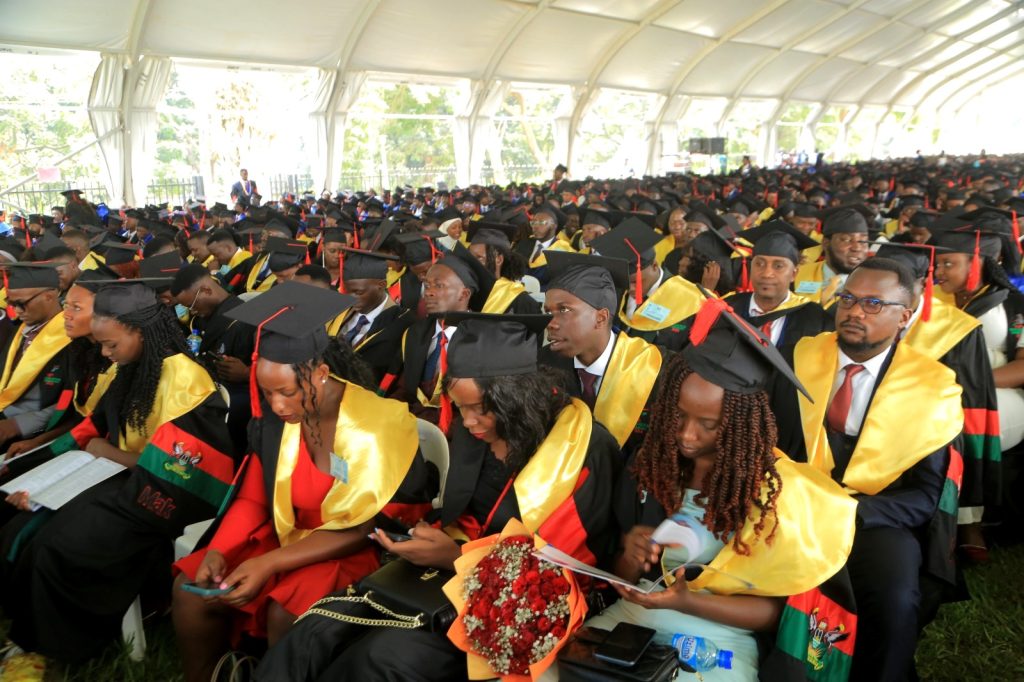
The Vice Chancellor highlighted a number of achievements recorded in the last two years including the timely issuance of the academic transcripts at the time of graduation.
In his key message to the graduands, Prof. Nawangwe described graduation as the most important and most memorable day in the life of any scholar on grounds that it is a licence to succeed in life, and a privilege to serve humanity.
“You have worked hard to get a degree or diploma from one of the best universities in the World. This is a license for you to succeed in whatever you choose to do in your life career. But always remember that success will only come with discipline and hard work, while honoring your parents and fearing God.
Shortly you will become an alumnus of this great institution. Cherish the knowledge and experiences you have collected while here, but remember that learning never ends. Our gates remain open for you if you wish to pursue higher degrees”, The professor advised.
With a degree from one of the best universities in the World, Prof. Nawangwe stressed, that graduates have no reason not to succeed in life.
“Indeed, the World is yours to conquer. If jobs are not forthcoming, create them, for we have empowered you not only to be employable, but also to be entrepreneurs. Be the light that others will follow. We are proud that we have been a part of your life, that we have given you the knowledge and courage to face life in this ever-changing World. Go out to the World and make it a better place”. He emphasized.
Please find these and more in the Vice Chancellors speech attached.
You may like
-


Mak 76th Graduation Ceremony: CoNAS Presents 16 PhDs & Best Performing Male Student in the Sciences
-


Medical graduates urged to uphold Ethical values
-


CAES Presents Overall Best Performing Student in the Sciences & a Record 28 PhDs at the 76th Graduation Ceremony
-


Graduation marks the next phase of accountability, graduates told
-


Over 9,200 to graduate at Makerere University’s 76th Graduation
-
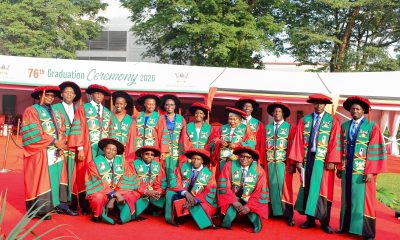

Mak 76th Graduation Ceremony: CEES Celebrates Academic Excellence, with 27 PhDs
Computing & IS
Makerere Launches Scholarly Guide, Calls for Increased Research, Publication and Innovation in Africa
Published
2 weeks agoon
February 12, 2026By
Jane Anyango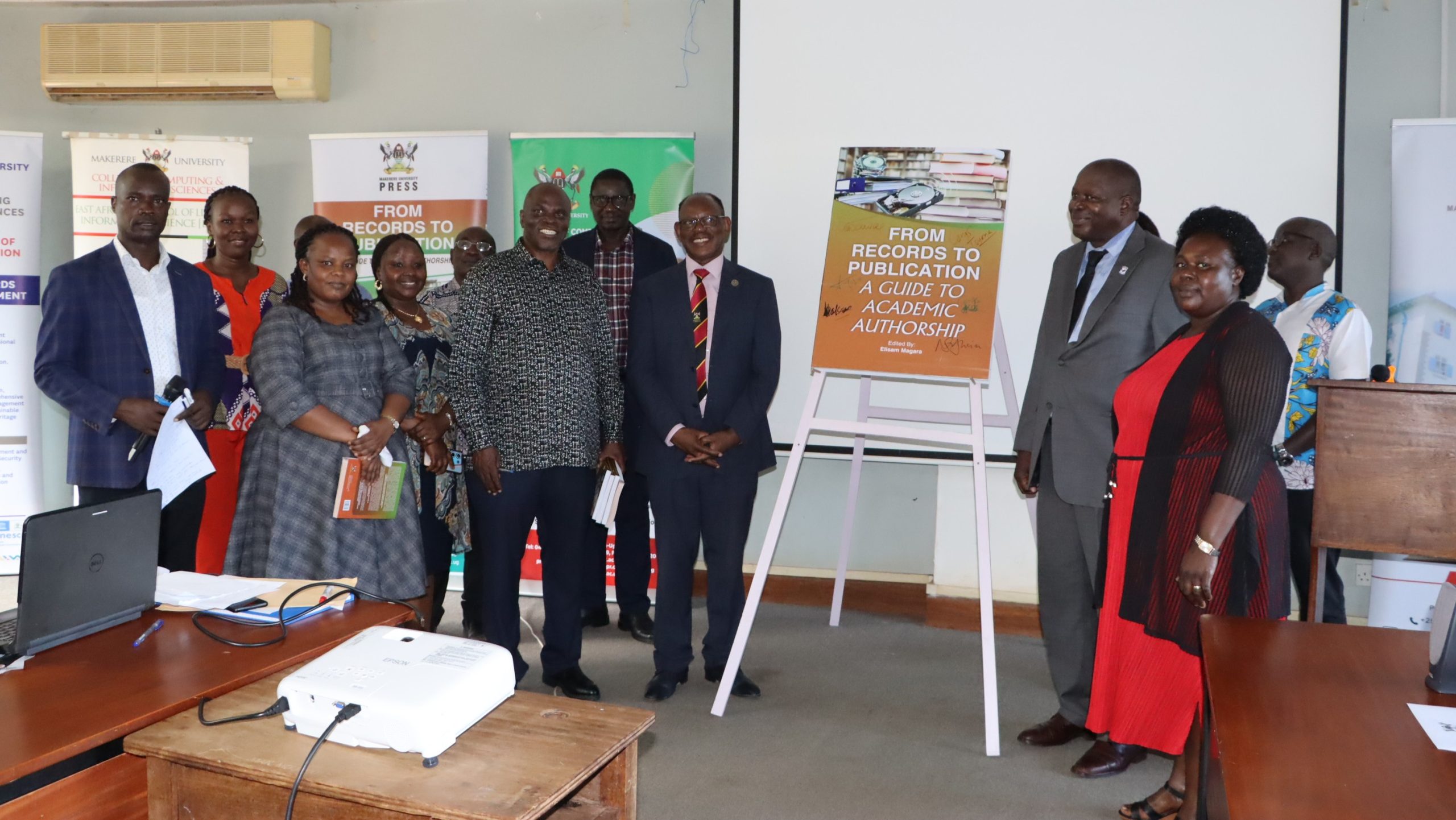
VC Emphasizes Research as Key to Africa’s Global Integration
Makerere University Vice Chancellor, Prof. Barnabas Nawangwe, has urged universities across Africa to invest in research, publication, and innovation as a pathway to greater participation in the global knowledge economy.
Speaking at the launch of From Records to Publication: A Guide to Academic Authorship, edited by Prof. Elisam Magara of the East African School of Library and Information Sciences, Prof. Nawangwe highlighted Africa’s low contribution to global scholarship. “Although Africa accounts for 15 percent of the world’s population, it produces only 3 percent of global research publications,” he said.
“There are historical reasons for this,” the Vice Chancellor continued, referencing centuries of slavery and colonialism. “You cannot brush away 600 years of subjugation. And we Africans have not even written enough about that. If we want to move Africa back into the global community, we must invest in research, publication, and innovation.”
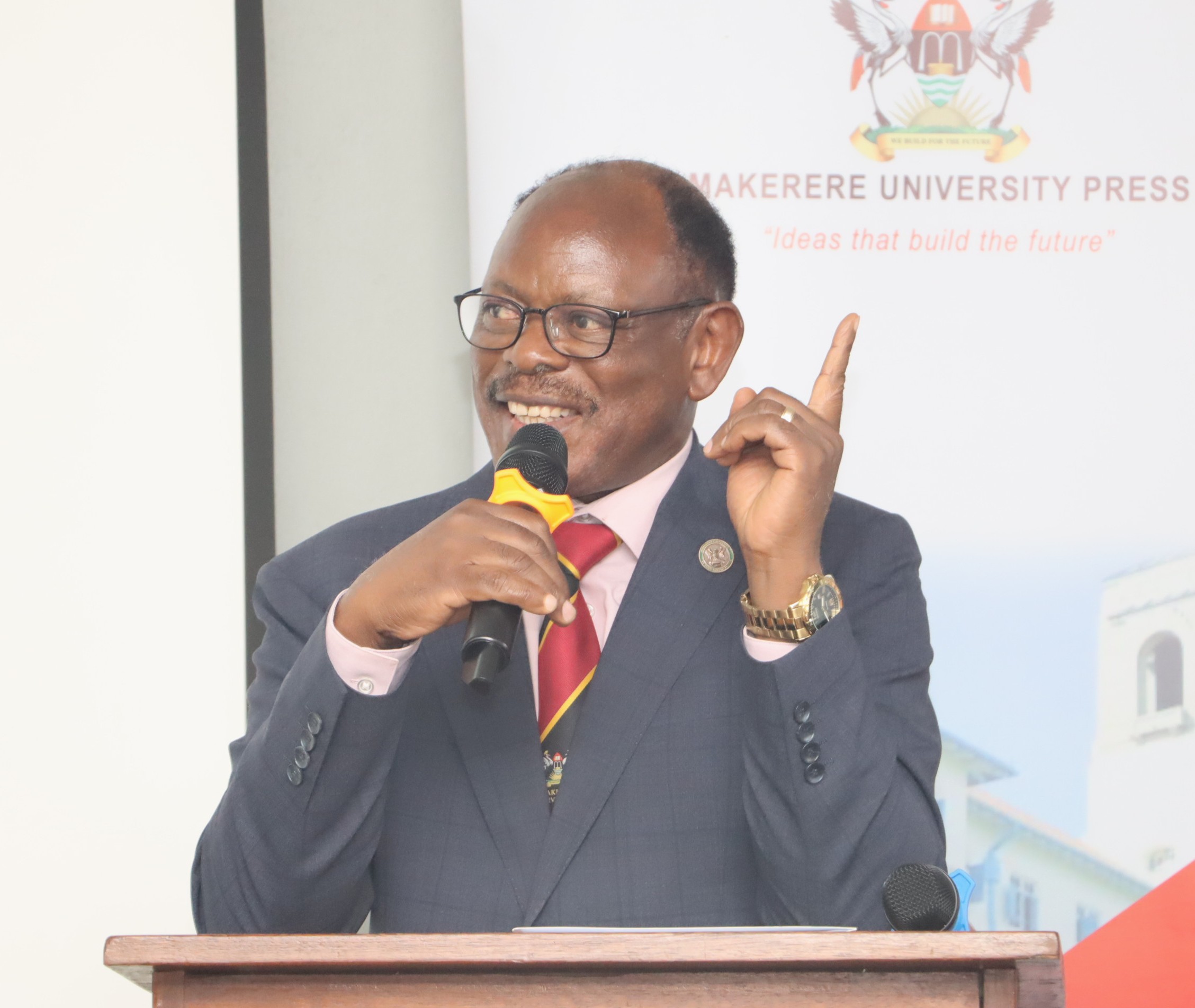
He cited China as an example, noting how the country’s investment in research and education has translated into economic and global influence. “When we say China is the factor of the world, it is not that people just wake up and begin making things. They invest in education, in publication, in research. If we want to transform Africa, we must do the same.”
Prof. Nawangwe highlighted Makerere’s progress, revealing that annual peer-reviewed publications have grown from about 500 a decade ago, to 700, and now exceed 2,000. He acknowledged that the university still trails South African institutions, partly because they operate numerous local journals that absorb significant volumes of research. “We are not fully utilising the brand of Makerere University Press,” he said, pledging support to strengthen the press and scale up journal production.
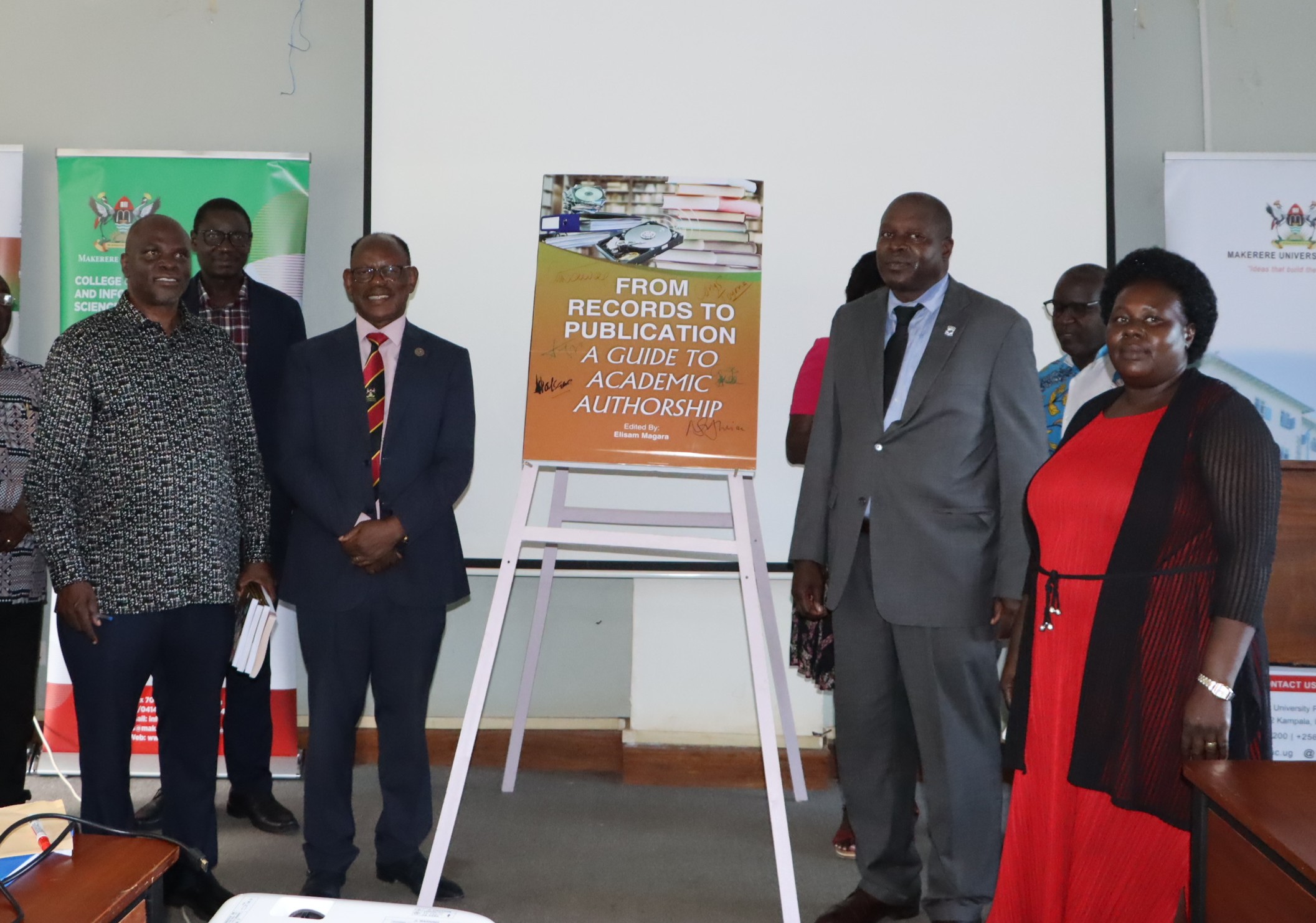
He also reaffirmed the university’s strategy to reduce excessive undergraduate enrolment and expand graduate training to boost research output. “Let us create time for professors to do research and supervise more graduate students,” he said.
Commending Professor Magara and his team for producing the authorship guide, Prof. Nawangwe described the book as an essential handbook for Master’s and PhD students, early-career researchers, and universities across the region striving to become research-led. “This is at the heart of the university. If we invest in research and publication, we secure our future,” he said.
Book Recommended as Mandatory Guide by College Principal
Makerere University’s Principal of the College of Computing and Information Sciences, Prof. Tonny Oyana, called for the newly launched volume to be adopted as a mandatory guide for graduate students and newly appointed lecturers. “This is not a bad book for our first-year PhD students to start with,” he said. “Even those who are hired as junior lecturers still need mentorship. If I were the Vice Chancellor, I would put this book as required reading for every new hire.”
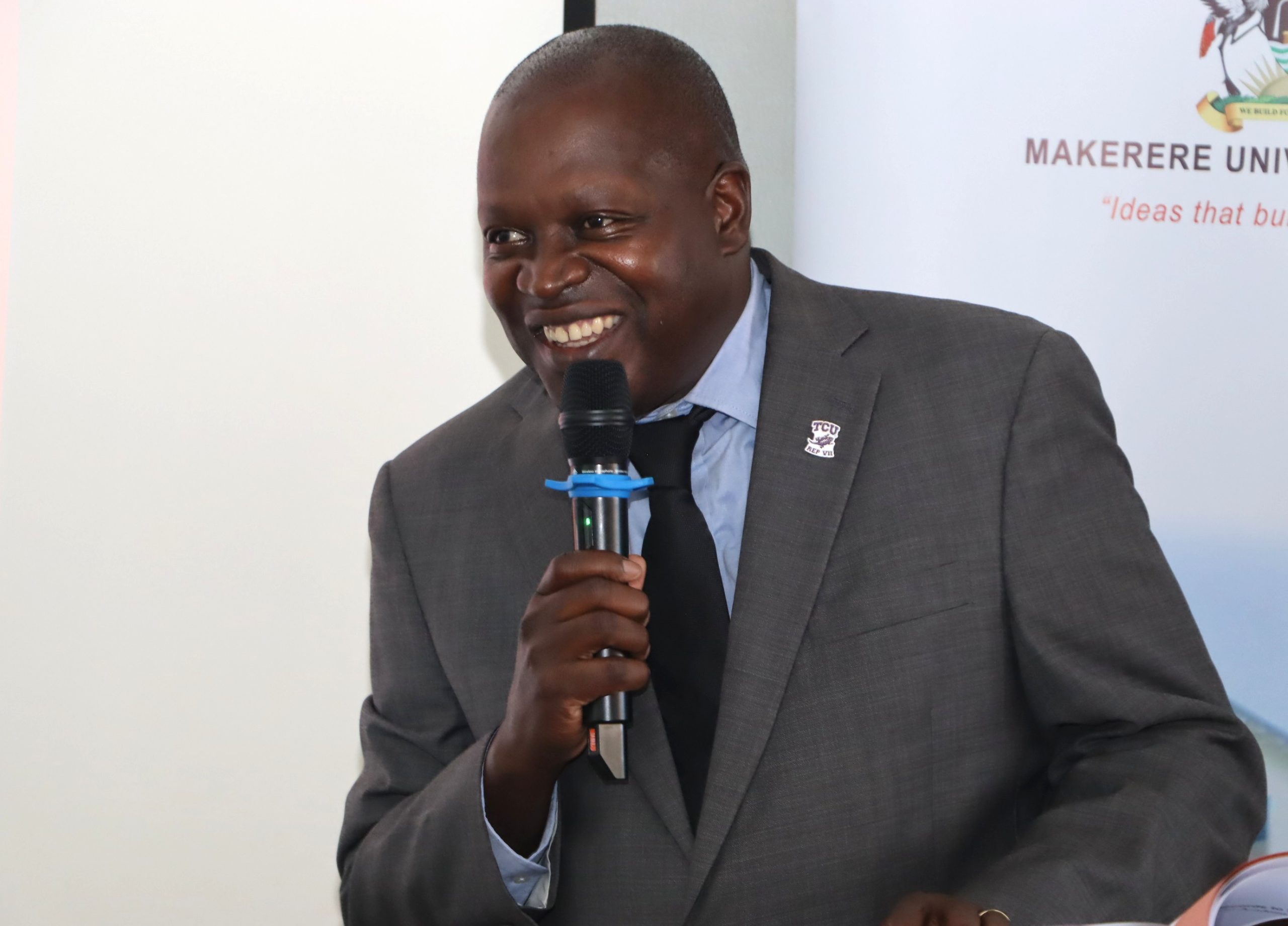
Prof. Oyana reflected on his personal contribution to the book, revealing that administrative responsibilities nearly forced him to withdraw. “Because of the work that I do, I was about to give up,” he admitted. “But Professor Magara was persistent. He came back to me and gave me more time.”
He credited a PhD student, Caroline Ilako, for assisting with library research and literature reviews, saying, “She did a wonderful job. We went back and forth through revisions, but finally we produced the work.”
On the quality of the book, Prof. Oyana said, “When you pick up a book, look at how it is laid out. The quick judgment tells you about the quality. This is well put together. We are beginning to show quality comparable to Western presses.”
He also challenged traditional notions of “publish or perish,” noting, “As scholarship evolves, those who evaluate scholarship must also adjust. Impact, innovation, and tangible products are increasingly valued alongside journal articles.”
Editor Highlights Research-Based Approach
Prof. Elisam Magara, the book’s editor, explained that the guide is designed to support scholars from the moment they conceive a research idea to the point their work is published and read. “I looked at the books we were using and asked myself: which kind of book can truly guide students? We needed a clear guide from the time a scholar thinks of writing up to the time the book is read,” he said.
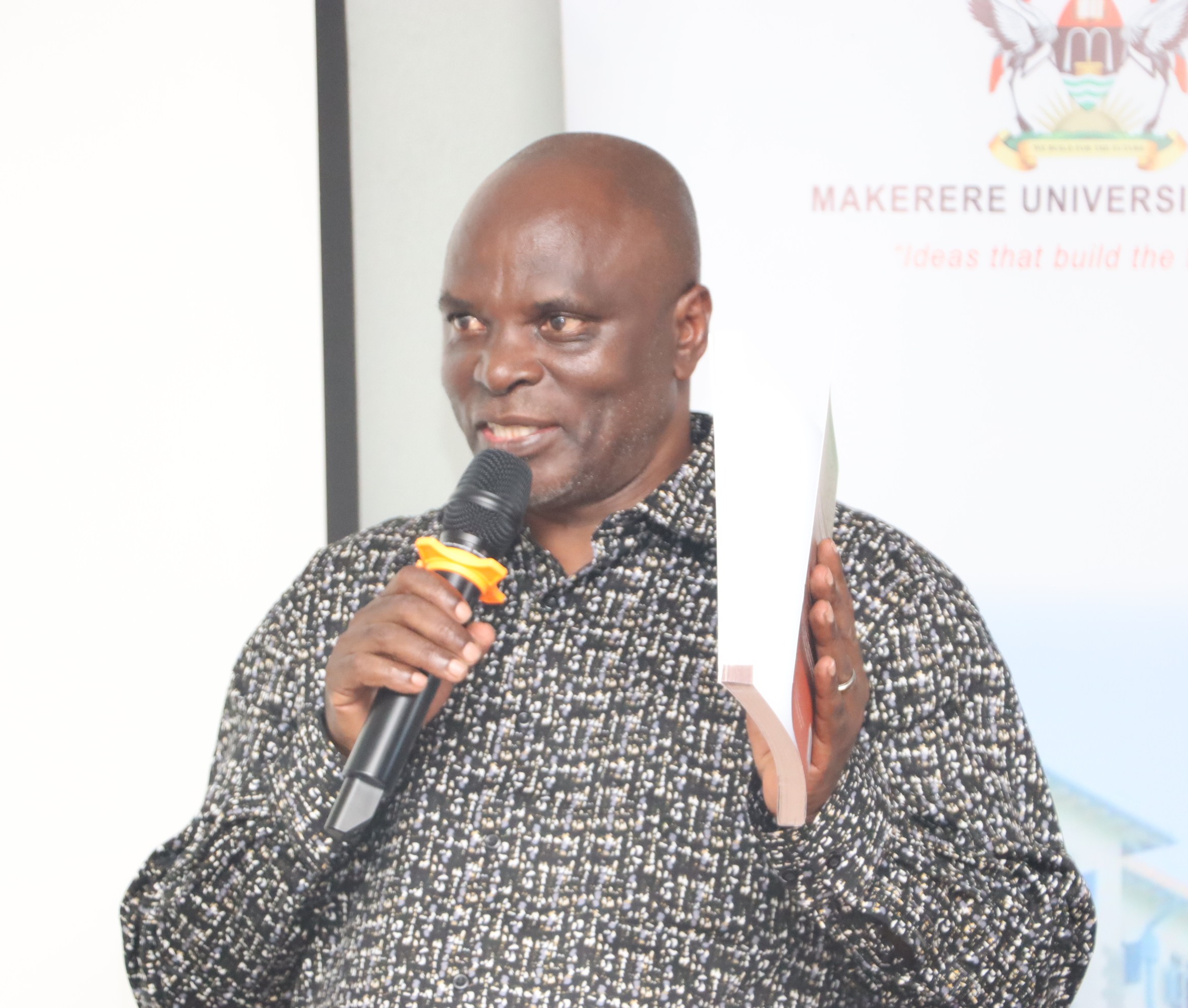
He detailed the rigorous editorial process that began in 2022, including international calls for contributions, peer review of abstracts, writeshops for feedback, and multiple rounds of chapter reviews. “Don’t write and keep,” he advised. “Your book must have impact. It must reach the public and be used.”
Prof. Magara also acknowledged the sabbatical granted by the Vice-Chancellor, which enabled him to balance teaching and editorial responsibilities. “This book is meant not just for Makerere but for scholars across the region and beyond,” he said.
Mak Press Outlines Rigorous Publishing Process
Dr. Isaac Tibasima, representing the Managing Director of Makerere University Press, explained the publication pathway. “Once you bring your manuscript to the press, we take it through evaluation, external peer review, revisions, copy-editing, typesetting, and pre-press review before printing,” he said.
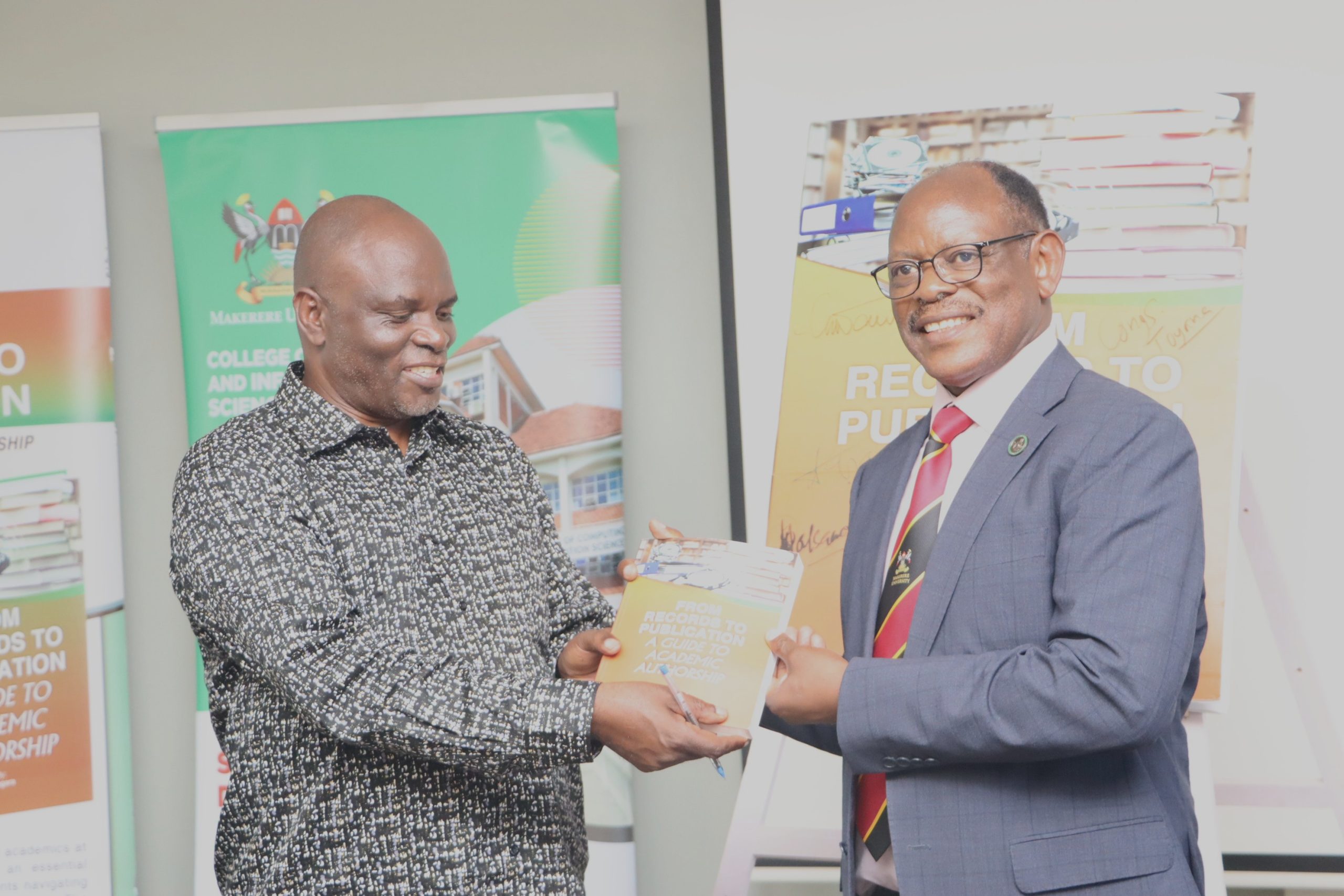
He also highlighted the press’s efforts to strengthen college-based journals. “We will not run the journals, but they will be published under the imprint of Makerere University. If we produce consistent issues, we can then move toward global indexing,” Dr. Tibasima said.
All new journals and articles now carry Digital Object Identifiers (DOIs) to enhance discoverability, while past publications are being retroactively assigned DOIs. “We are not there yet, but we are moving there, and we are intentional about getting there,” he added.
School Leaders Celebrate Scholarship and Mentorship
In welcome remarks, Dr. Sarah Kaddu, Dean of the School, said, “This event is a celebration of scholarship, intellectual discipline, and the journey of knowledge creation. This book speaks directly to one of the most critical challenges facing scholars—transforming research records into publishable work.”
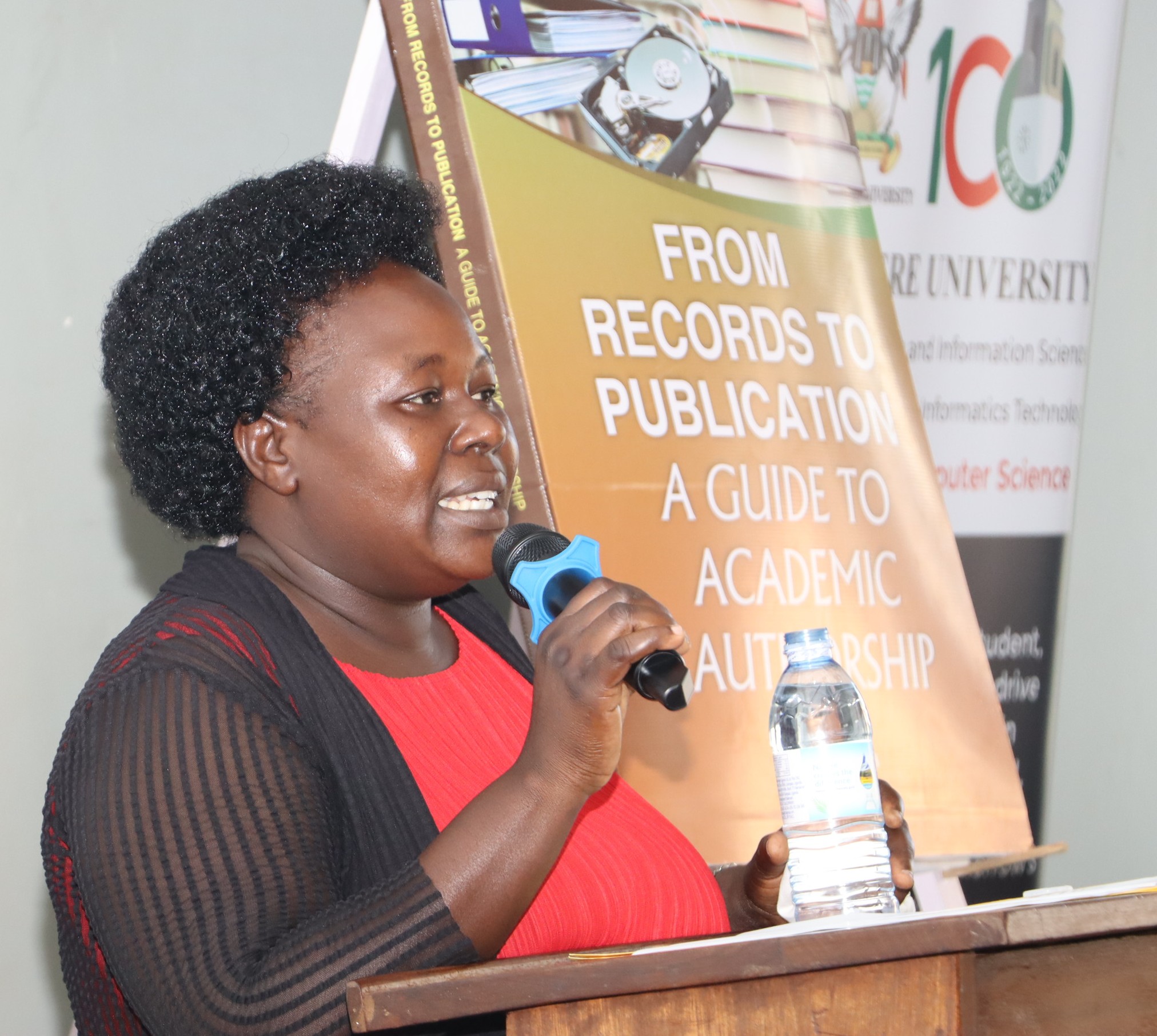
Dr. Sylvia Namujuzi, Head of the Department of Records and Archives Management, added, “This book is timely. It responds to real challenges faced by early-career researchers, postgraduate students, and even seasoned academics—questions of structure, authorship ethics, citation, collaboration, and navigating the publication ecosystem.”
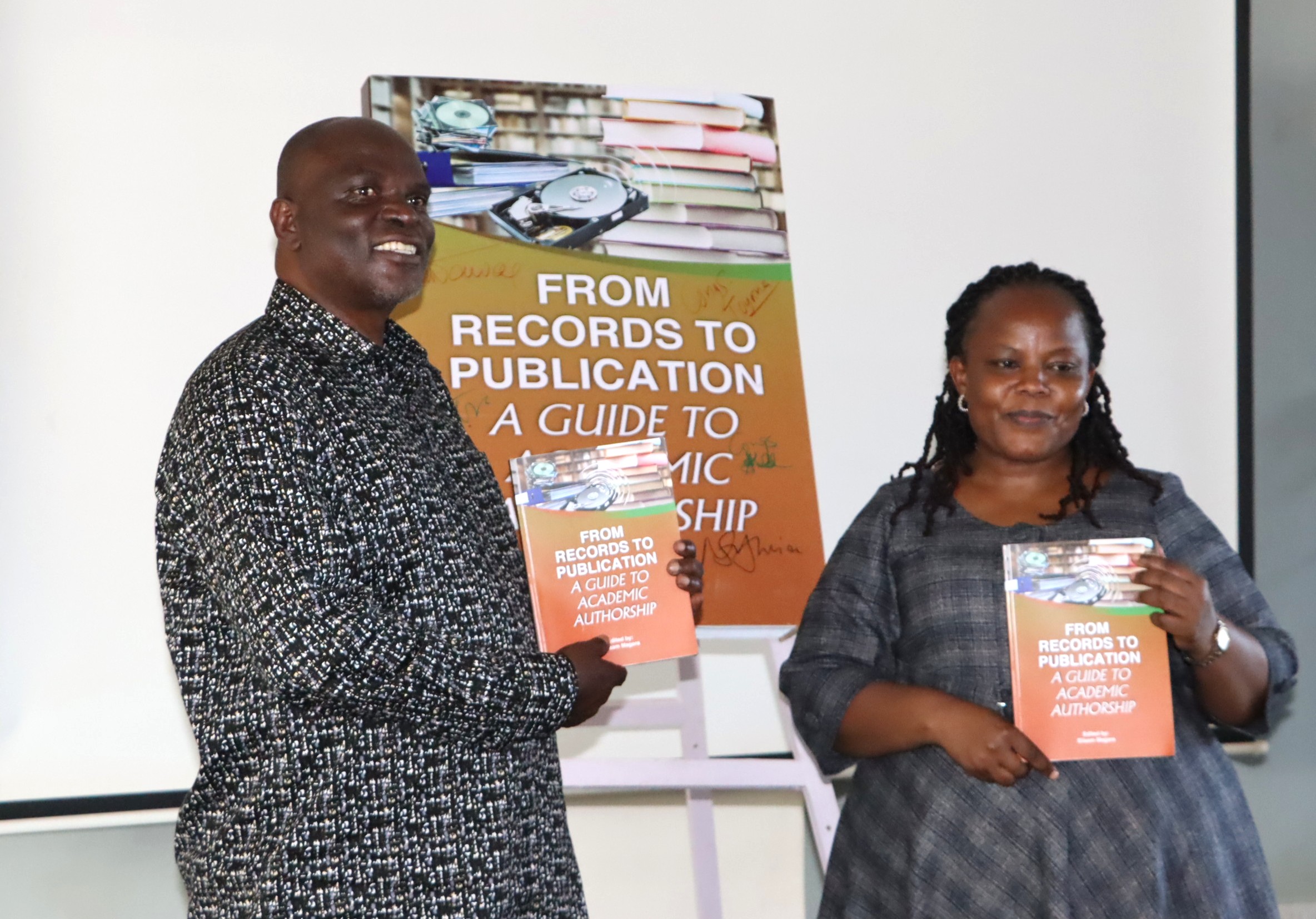
She concluded: “Well-managed records are not endpoints; they are the beginning of inquiry, reflection, and publication. This guide demonstrates that pathway.”
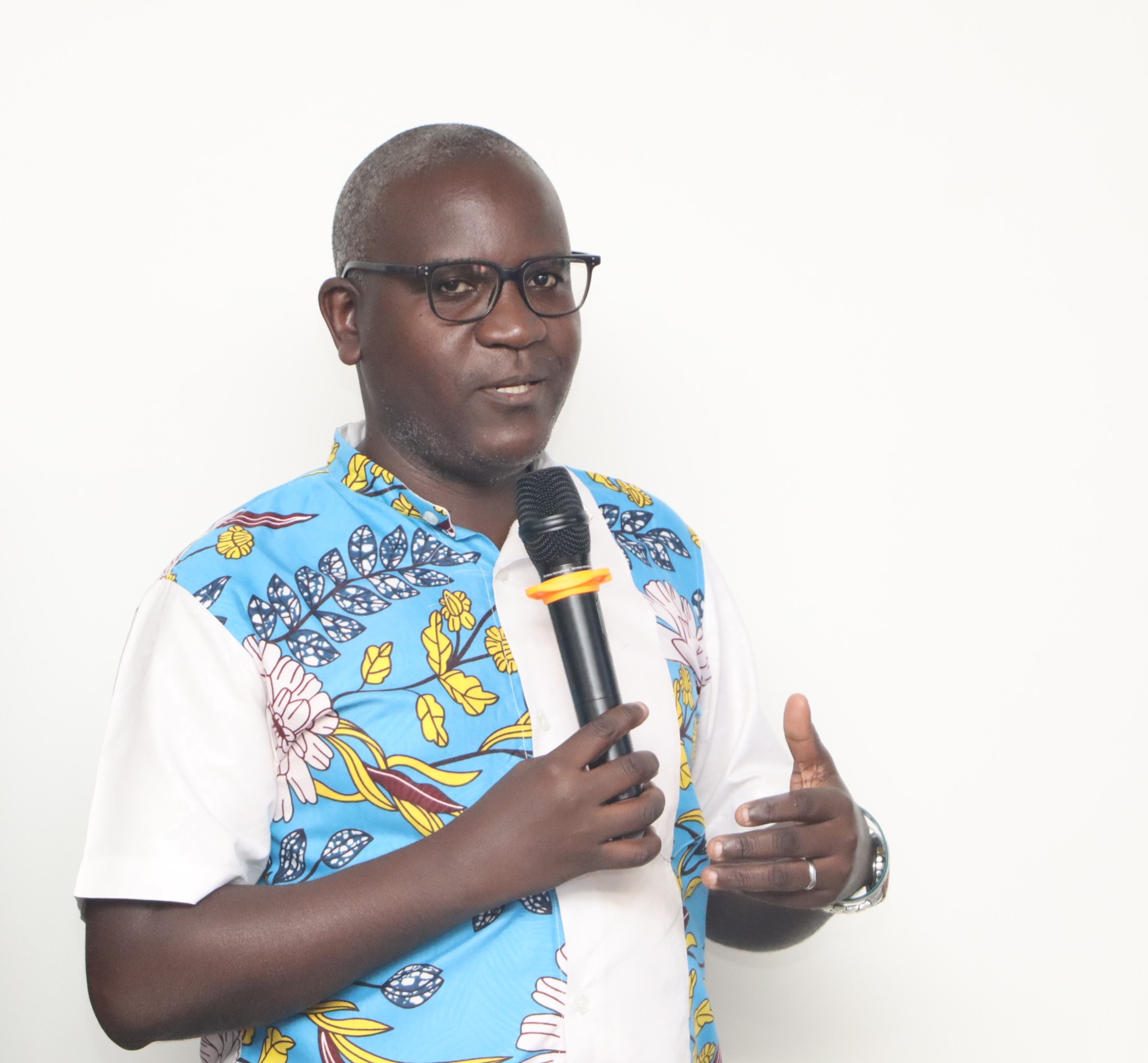
Book Outline
- Introduction: Publication Journey. (Prof. Elisam Magara)
PART I: Foundations of Academic Authorship.
- Conceptual Foundations of Academic Authorship
Elisam Magara and Joseph Kiplangat.
- Archives as a Source of Information for Academic Writing
David Luyombya, Sylivia Namujuzi and Francis Ekwaro
- The place of Oral History in Contemporary Writing
Elisam Magara, James Nkanshah-Obrempong and Nthan Nzyoka Joshua
- Managing Ethical Dilemmas in Academic Writing
Maria Tsvere, Tsitsi Kanonge and Joselin Chigwada
- The Role of Copyright and Neighbouring Rights in Protecting Works of Authors and Publishers in Uganda
Ronald Kakungulu Mayambala
PART II: Managing the Publication Process
- A Manuscript: From Inception to Publication
Sarah Mirembe Kyankya
- Managing Co-Authorship in Academic Writing
Gankhanani Moffat Moyo
- Managing Illustrations and Visual Artworks in Academic Writing
Bob Magara Rutatugirwa
- Tapping into Open Access Platforms for Gainful Authorship
George Muganga
- Managing the Costs in Academic Authorship
Aloysius Rukundo
- The Important Translation in Publication
Monica Mweseli
- Citations and Referencing in Academic Writing
Clement Lutaaya Nabutto, Namujuzi Sylivia, and Daviv Luyombya, Makerere University
- Referencing Management Software In Academic Writing
Odeke Moses Osamai and Constant Okello-Obura
- Compliance with International Bibliographic Control Standards in Academic Authorship
Elisam Magara and Dniel Osinde
PART III: Secondary Services in Academic Writing
- Journal Impact Factor and its Role when Submitting a Publication Article
Tonny J. Oyana and Caroline Ilako
- Managing Mentorship Programmes for Scholarly Writing
Diyoshak Rhoda Danladi and Elisam Magara
Report by
Jane Anyango, Principal Communication Officer CoCIS
Ritah Atukwatse, Journalism and Communication Student (2nd Year)
Fred Kanwagi, Journalism and Communication Student (3rd Year)
Computing & IS
CoCIS CIPSD Short Courses Jan-Mar 2026
Published
1 month agoon
January 19, 2026By
Mak Editor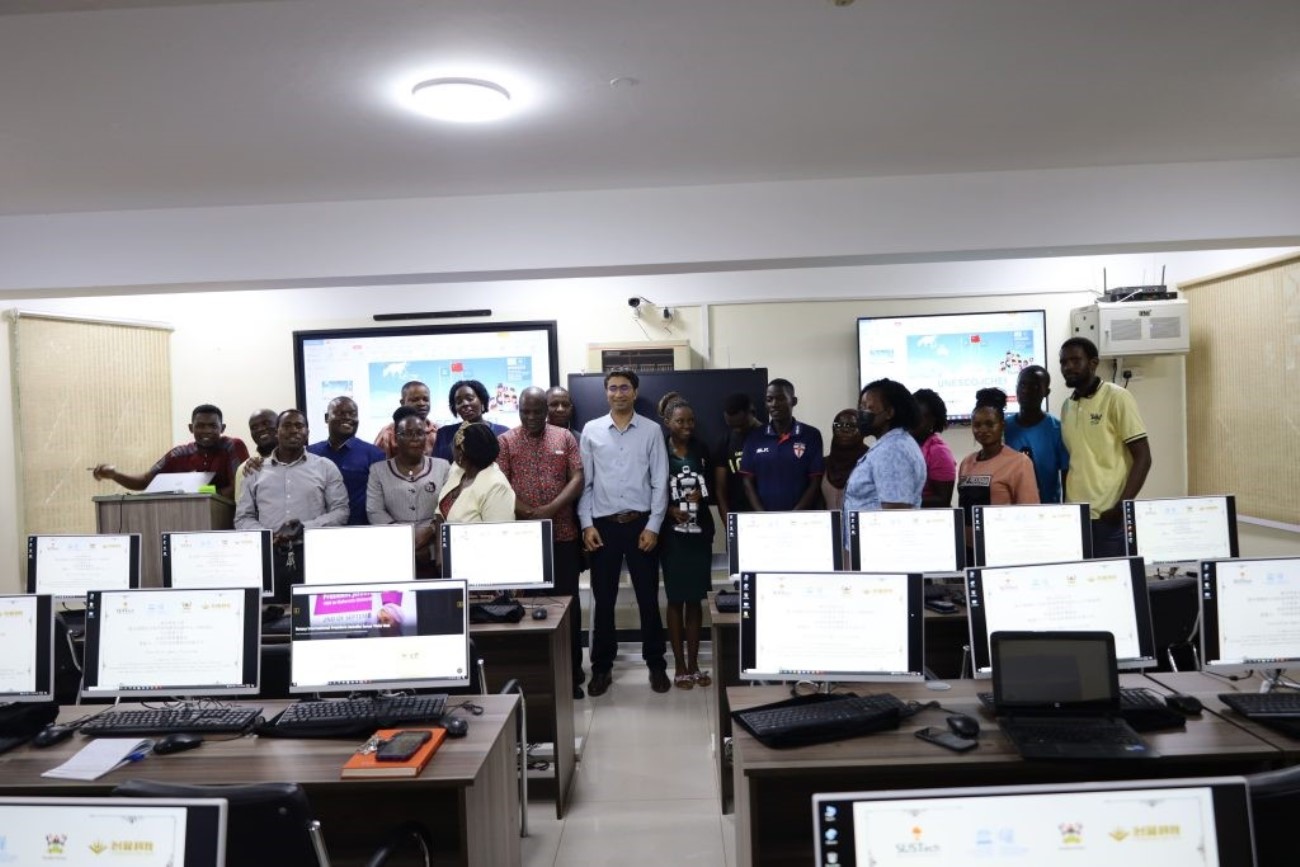
Makerere University College of Computing and Information Sciences (CoCIS) is the main ICT Training, Research and Consultancy Centre in Makerere University. The College has six Academic departments comprising of the Department of Computer Science, Department of Networks, Department of Information Technology, Department of Information Systems, Department of Library and Information Sciences, and the Department of Records and Archives management.
In addition to the mainstream degree programmes, CoCIS has a specialized Center for Innovations and Professional Skills Development (CIPSD) which delivers state-of-art training in ICT e.g. the Cisco Networking Academy for Cisco related courses, the Microsoft IT Academy Program for Microsoft related courses, International Computer Driving License course, Oracle Certified Training center for Oracle, Linux and Unix Training center. CIPSD also offers Machine Learning, Big Data Analytics, Data Science, Artificial Intelligence (AI) and Ethical Hacking as online courses. The College is an authorized Testing center, operating under PearsonVUE and Kryterion. Listed in the table (see download below) are the courses currently offered at the Center with their next start dates, duration, and cost.
- All courses are at affordable fees catering for Students, Vacists, Professionals and
- Anyone who wants to start a career in ICT or polish his/her ICT skills.
Contact Information
E-mail: psd.cis@mak.ac.ug
Tel: +256 782 512 897 +256 752 779964
URL: https://cocis.mak.ac.ug/cipsd/
Computing & IS
Makerere University and SoonPay Sign Landmark MoU to Champion Blockchain Innovation and Financial Inclusion Across Africa
Published
3 months agoon
December 9, 2025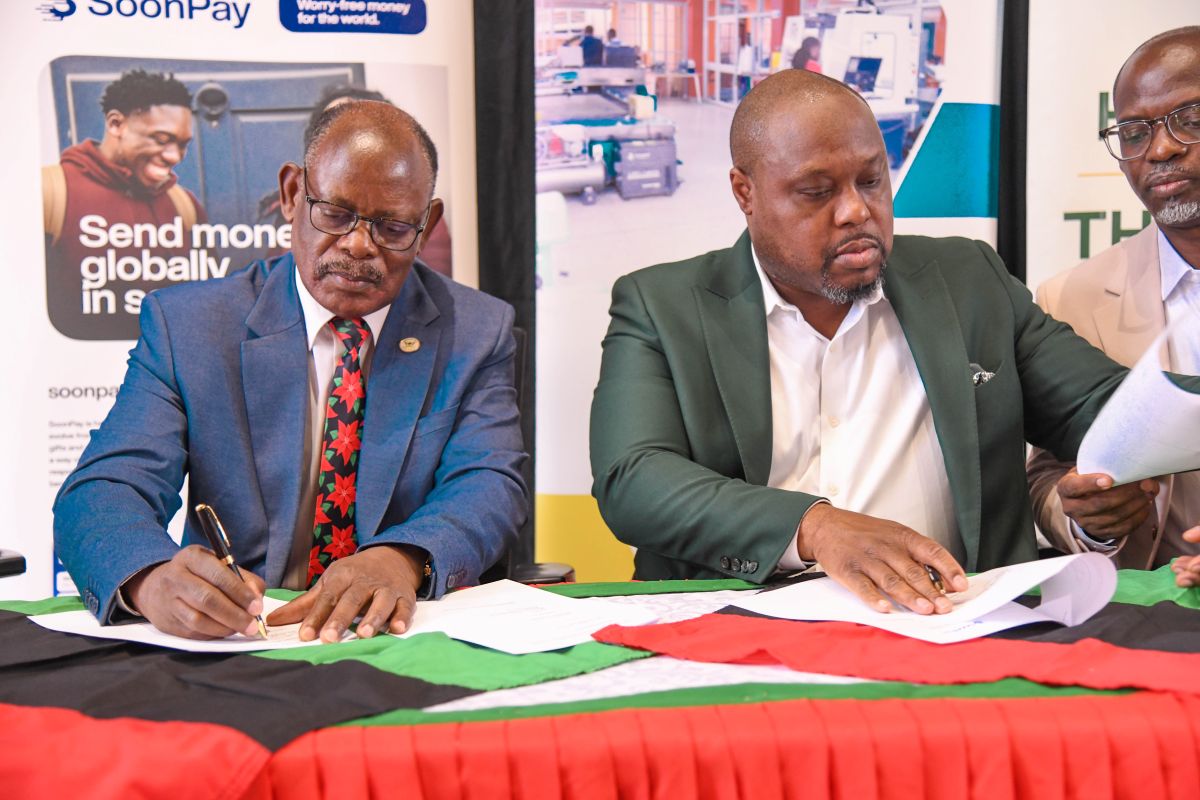
On Saturday 6th December 2025, Makerere University entered into a ground-breaking partnership with the U.S.-based fintech company SoonPay, marking a major breakthrough in Uganda’s push to integrate emerging technologies into research, innovations, higher education and national development.
The Memorandum of Understanding was signed by the Vice Chancellor of Makerere University, Prof. Barnabas Nawangwe and Mr. Frantz Morency, Chief Executive Officer of SoonPay L.L.C, during the Makerere University Financial Innovation Day, a high-energy event that brought together over 800 students, faculty, industry partners, and technology leaders.
The MoU institutionalizes the collaboration of Makerere University through the Makerere University Technology and Innovation Centre and SoonPay LLC. The signing ceremony was witnessed by Dr. Cathy Ikiror Mbidde-Manager of Makerere University Technology and Innovation Centre and Ms. Vuyani Jones-Blockchain Infrastructure Manager.
Organized by the Makerere University Technology and Innovation Centre (MUTIC) in partnership with SoonPay, the event ran under the theme “Innovation and Financial Inclusion for a Secure Future.” It featured keynote speeches, panel discussions, live demonstrations, and the signing of a Memorandum of Understanding (MoU) that will usher in a new era of blockchain training, research, and innovation at Uganda’s premier university.
The event was supported by several partners, including the National Social Security Fund (NSSF), the Uganda Blockchain Association, the National Planning Authority (NPA), Prudential Uganda, and other technology and financial sector stakeholders.
A Strategic Partnership to Transform Africa’s Digital Landscape
The newly signed MoU between Makerere University and SoonPay is expected to unlock a broad set of opportunities for students and academic staff. These include blockchain education and certification, joint research projects, internships and apprenticeships, the development of new financial inclusion tools, and the integration of emerging technologies into existing academic programs.
SoonPay’s entry into Uganda is part of a larger vision to expand blockchain-driven solutions across Africa—a continent its executives say has historically been excluded from global technological revolutions.

Impressed by the overwhelming numbers of students who filled the Yusuf Lule Central Teaching Facility Auditorium to the brim, the Vice Chancellor, said: “Dear students, by choosing to stay on campus, on a Saturday, and after completing your examinations, you have demonstrated your willingness to learn and embrace the blockchain technology as well as emerging technologies in general.”
Stating that blockchain technology is the future for Africa, the Vice Chancellor challenged the students to take charge of Africa’s digital transformation.
“You are the people to emancipate Africa from marginalization,” he declared. “What will liberate our continent is not politics—we have done too much of that. It is education, research, innovation, and technology.”
Prof. Nawangwe delivered a sweeping historical reflection, tracing Africa’s technological setbacks to the destruction of its civilization over several centuries.
“For 400 years, Africans were taken away as slaves. For another 200 years before that, our lands, knowledge systems, and technologies were disrupted,” he said. “This represents around 600 years of destruction and marginalization of African civilization.”
He urged students not to miss the opportunity that modern technologies such as blockchain and artificial intelligence present.
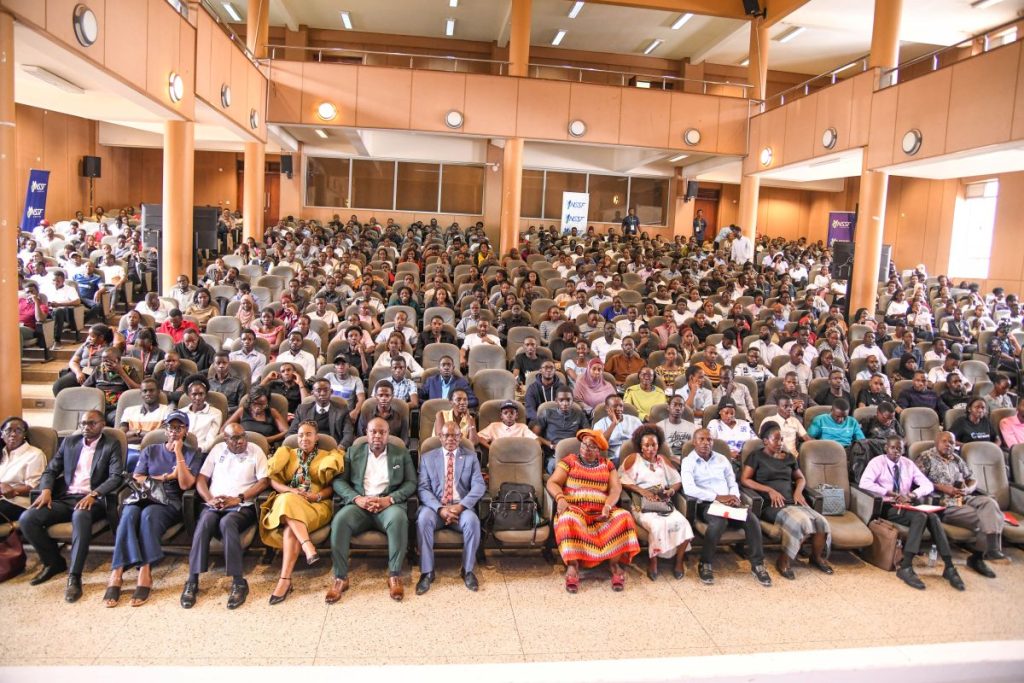
“We are lucky to be living in an era where Africa is free,” the Vice Chancellor said. “My hope is that we do not wait another 600 years to take advantage of this freedom. The most important resource we have is not minerals; it is human resources—you, the youth.”
Prof. Nawangwe reminded students that Makerere’s reputation as the “intellectual capital of Africa” places immense responsibility on their shoulders.
“You are among the very few Ugandans privileged to study at Makerere University. University graduates are not supposed to wait for jobs—you are the ones expected to create them,” he said.
Why Blockchain? Transparency, efficiency, and global competitiveness
The Vice Chancellor highlighted the transformative potential of blockchain technology, especially in improving financial systems—a sector he described as the backbone of any modern economy.
“Without efficient financial systems, nothing else works,” he said. “Blockchain offers transparency, reduces fraud, and minimizes corruption. If applied properly, it could transform how we manage finances, education, and even our natural resources, including the oil that Uganda is about to exploit.”
He added that Makerere’s students are already demonstrating global competitiveness in innovation, winning international competitions and creating products across multiple disciplines.
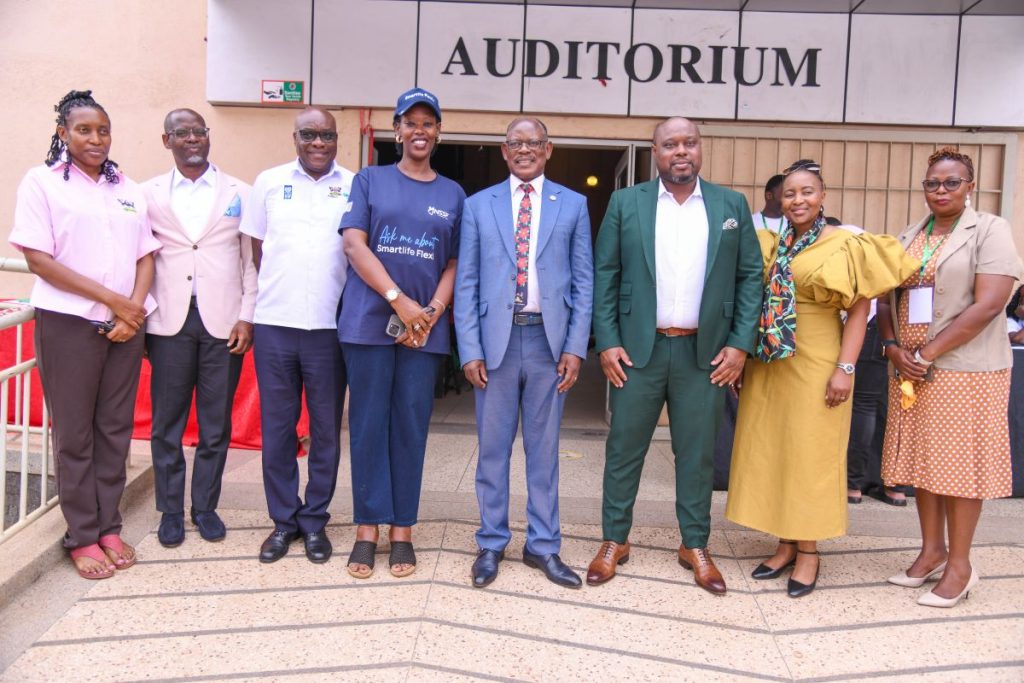
“The brains are here,” he said. “What we need is exposure to opportunities and technologies that will help you turn your ideas into impactful solutions.”
In a passionate keynote address, SoonPay CEO, Mr. Frantz Morency underscored why his company chose Uganda as its launchpad for blockchain adoption in Africa.
“As the Professor said, we have been excluded for more than 400 years,” he stated. “Even though we’re an American company, we know our roots. Look around the SoonPay team—you will see yourselves. We chose Uganda intentionally.”
Mr. Morency pointed to Africa’s dismal participation in the global blockchain economy. “In the U.S., blockchain generates $2.6 billion—61.7 percent of the world’s share. The rest of the world generates $1.6 billion. And Africa, just $14 million, or 0.33 percent,” he said. “That is unacceptable.”
He attributed the gap not to a lack of interest among young Africans, but to a lack of opportunity. “You want to learn—what you lacked was opportunity,” he said. “With the support of Professor Nawangwe, Dr. Cathy Ikiror Mbidde, and Dr. Margaret Nagwovuma, SoonPay wants to bridge that gap in education, technology, and economic opportunity.”
Mr. Morency also shared his personal journey, connecting his Haitian background to the aspirations of African youth.
“Many of you may see me as ‘the guy in the green suit,’ but I come from a small island—Haiti,” he said. “My mother never finished first grade; my father never finished second grade. What they gave me was integrity, work ethic, and the determination to seize opportunities when they came.”
He urged students not to seek opportunities abroad out of desperation, but to build meaningful careers in Africa. “Africa does not need to lose its talent. Why can’t you build here? Why can’t businesses, innovation, and prosperity thrive here?” he said. “Educate yourselves. Build. Create. Grow.”
A milestone for Makerere and Africa
Dr. Cathy Ikiror Mbidde, Head of the Makerere University Technology and Innovation Centre (MUTIC), described the event as a “major milestone” in the institution’s evolution.
“We are here to witness one of the key emerging technologies and to reflect on how universities can embrace such milestones,” she said. “Everyone has a role to play in transforming our lives through research, ideas, and projects.”
She thanked SoonPay for choosing Makerere University, noting that students had been “instrumental” in pushing for blockchain education.
“You have been constantly asking questions, pushing us, and showing deep curiosity about blockchain. Today, we finally have answers,” she told the students.
Beyond the speeches, the event showcased SoonPay’s blockchain infrastructure, student-led innovations, and a roadmap for integrating digital finance tools into university programs. Partners such as NSSF emphasized the importance of preparing young people for a digital future.
With the MoU now in force, Makerere University is positioning itself as a regional hub for blockchain education, research, and innovation. The partnership with SoonPay aims not only to train students but to shape Uganda’s—and Africa’s—next generation of tech leaders.
Trending
-

 Humanities & Social Sciences4 days ago
Humanities & Social Sciences4 days agoMeet Najjuka Whitney, The Girl Who Missed Law and Found Her Voice
-

 Health1 week ago
Health1 week agoUganda has until 2030 to end Open Defecation as Ntaro’s PhD Examines Kabale’s Progress
-

 Agriculture & Environment7 days ago
Agriculture & Environment7 days agoUganda Martyrs Namugongo Students Turn Organic Waste into Soap in an Innovative School Project on Sustainable Waste Management
-

 General1 week ago
General1 week agoMastercard Foundation Scholars embrace and honour their rich cultural diversity
-

 General3 days ago
General3 days ago76th Graduation Highlights
